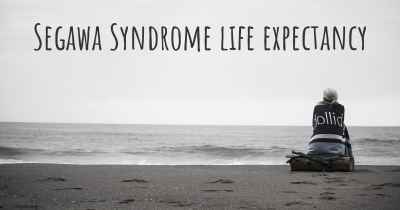Can people with Segawa Syndrome work? What kind of work can they perform?
See how people with experience in Segawa Syndrome give their opinion about whether people with Segawa Syndrome can work and what kind of jobs are more appropriated for people with Segawa Syndrome

Segawa Syndrome, also known as dopa-responsive dystonia (DRD), is a rare genetic disorder that affects the movement of muscles. It is caused by a mutation in the GCH1 gene, which leads to a deficiency in the production of dopamine, a neurotransmitter that plays a crucial role in controlling movement.
Individuals with Segawa Syndrome often experience symptoms such as muscle stiffness, tremors, difficulty walking, and abnormal postures. However, the severity of symptoms can vary from person to person. The good news is that Segawa Syndrome is highly responsive to treatment with levodopa, a medication that helps increase dopamine levels in the brain.
Can people with Segawa Syndrome work?
The ability of individuals with Segawa Syndrome to work largely depends on the severity of their symptoms and the effectiveness of their treatment. With proper management and support, many individuals with Segawa Syndrome are able to lead productive lives and pursue employment.
What kind of work can they perform?
The type of work that individuals with Segawa Syndrome can perform varies based on their individual capabilities, skills, and interests. It is important to note that Segawa Syndrome affects movement and muscle control, but it does not impact cognitive abilities. Therefore, individuals with Segawa Syndrome can excel in a wide range of professions that do not require extensive physical exertion.
Some potential career options for individuals with Segawa Syndrome include:
- Office-based jobs: Many individuals with Segawa Syndrome can work in office environments where they can utilize their cognitive skills. This may include administrative roles, data entry, customer service, or other desk-based jobs.
- Technology-related jobs: The field of technology offers various opportunities for individuals with Segawa Syndrome. They can pursue careers in software development, web design, graphic design, data analysis, or IT support, among others.
- Creative professions: Individuals with Segawa Syndrome often possess creative talents. They can explore careers in writing, journalism, photography, graphic arts, music, or other artistic fields.
- Entrepreneurship: Some individuals with Segawa Syndrome may choose to start their own businesses, allowing them to have more flexibility and control over their work environment.
- Consulting and advisory roles: With their unique experiences and perspectives, individuals with Segawa Syndrome can provide valuable insights and advice in various fields, such as disability advocacy, healthcare, or accessibility consulting.
It is important for individuals with Segawa Syndrome to find a work environment that accommodates their specific needs. Reasonable workplace adjustments, such as ergonomic accommodations, flexible schedules, or assistive devices, can greatly enhance their ability to perform their job effectively.
In conclusion, individuals with Segawa Syndrome can certainly work and contribute to the workforce. While physical limitations may exist, their cognitive abilities remain intact, allowing them to excel in a variety of professions. With the right support and accommodations, individuals with Segawa Syndrome can lead fulfilling and successful careers.








